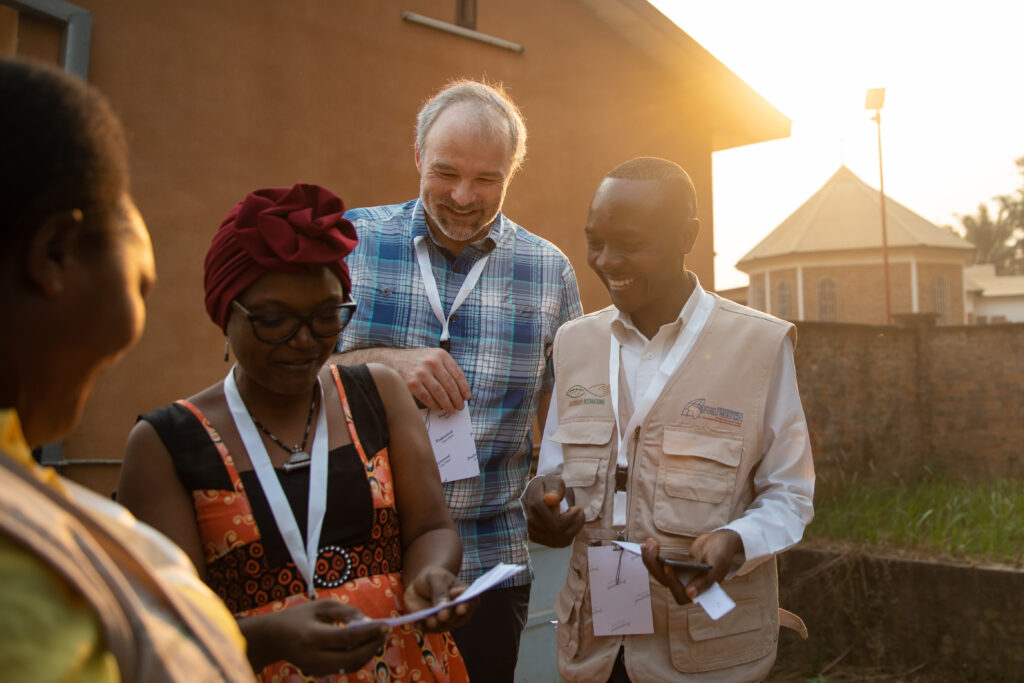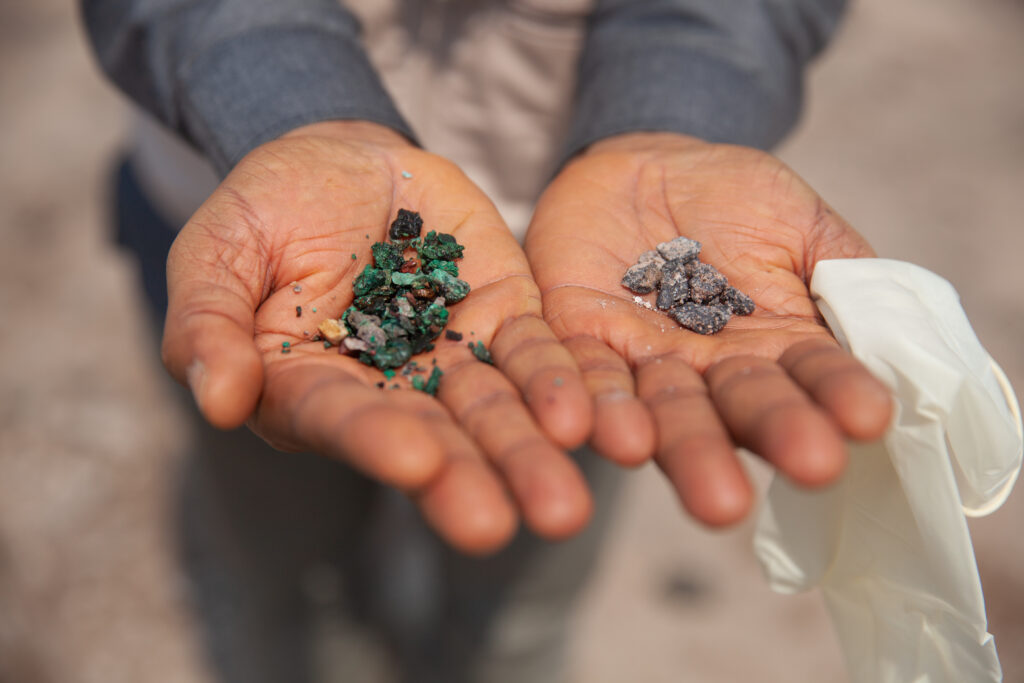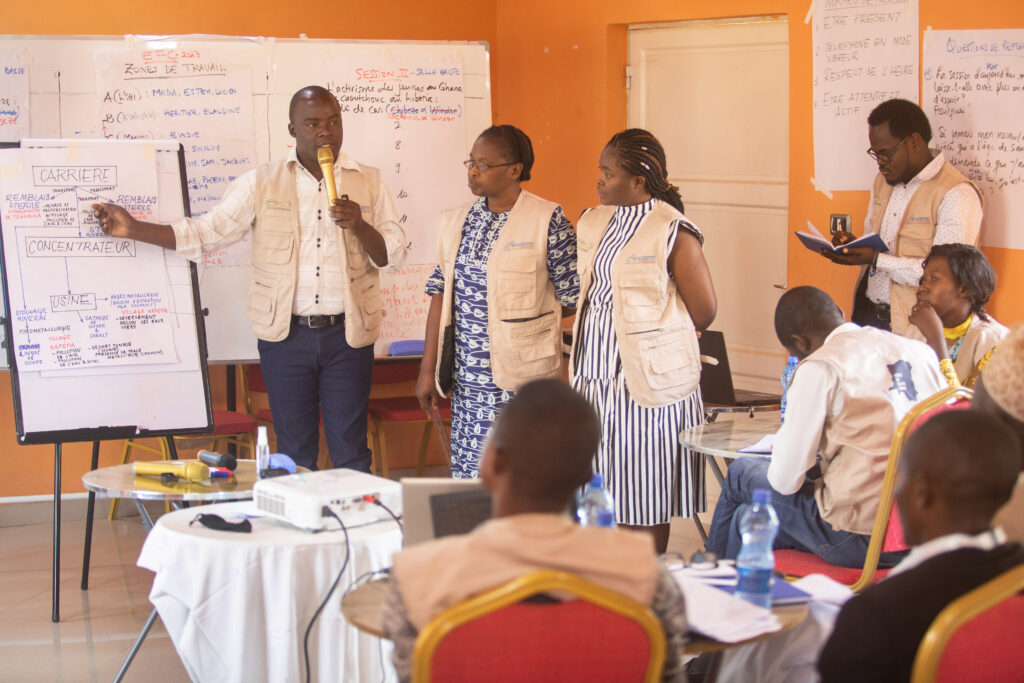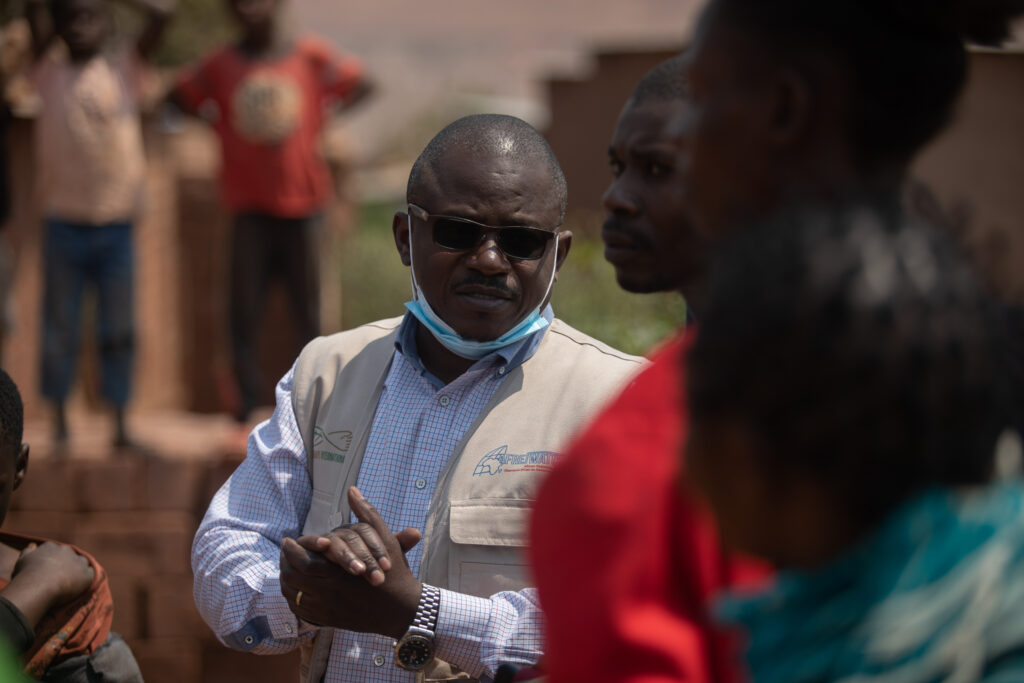What Meda and other students learned at the Congo River School is that there is always a way “to fight so that our community can move forward.” When Nathan, another participant at the School, returns to his community, he will use what he learned to “raise awareness and organize training workshops to present the real short-term, medium-term, and long-term dangers” of the massive open-pit cobalt mines next door. A third student, Alphonse learned new advocacy skills to “eventually bring about changes with the decision-makers and the companies that exploit our natural resources.” These three commitments, and the 21 others made by participants in their action plans, will help Congolese communities impacted by some of the most exploitative mining and development in the world know their rights and know how to use them.

Participants in the first Congo River School arrived in Lubumbashi, Democratic Republic of the Congo (DRC), already very familiar with the toxic byproducts, the dead fish, the polluted water, the poisoned soil, the unbreathable air, and the crippling health consequences of the nearby cobalt and copper mines, logging projects, and dams. The communities suffering from these impacts are their families, friends, and children. However, these leaders and activists did not yet know how to gather evidence and document these impacts. Or how to use that evidence and their legal rights to effect change. The Congo River School, or “Ecole du Fleuve Congo” (in French), was a first step in bridging that gap.
Over 10 days in late August, African Resources Watch (AfreWatch) and EarthRights International brought together 24 representatives from affected communities to learn and practice fundamental environmental and human rights documentation skills. Participants in the Ecole du Fleuve Congo heard from Congolese experts and practiced taking photos, collecting water and soil samples, interviewing community members, and gathering geolocation data. Civil society and NGO leaders from five different African countries, all participants in EarthRights’ Global School, also presented case studies and led group discussions around the power of advocacy and campaigns in African contexts. In addition to our community visits, we also toured the massive Shabara artisanal mine and learned more about the realities and potential of artisanal mining.

On the final morning of the training program, participants shared their “Action Plans,” detailing their plans for their next steps in their home communities. Participants reported leaving with “a lot of hope” and “a new understanding of natural resources and human rights.” One participant shared that the training “has awoken something in me and it has taught me that I have a role to play in my community.” Another wrote: “I have wonderful things to share, but please understand that this training is worth its weight in gold, despite the ills affecting the communities.”
Additional participant feedback and evaluation data from the Ecole du Fleuve Congo, collected through interviews, pre-tests and post-tests, and small group discussions, converged around two themes. First, participants recognized the value of their learning and shared experience in helping them develop the skills and knowledge they need to protect and fight for their communities’ rights. The most significant gains, consistent with the objectives of the school, were around participant knowledge about how to document environmental and human rights abuses, particularly through the techniques of soil collection and photo documentation. A second theme focused on the desire and need for additional training, framed by one participant as “we hope that such sessions can continue to be organized so that we can acquire the tools and knowledge that will enable us to confront the realities of our societies.”
The partnership between AfreWatch and EarthRights that led to the Ecole du Fleuve Congo grew out of EarthRights’ global convening, the 2022 Global School, and a shared commitment to train and empower earth rights defenders who are standing up for their communities in the face of merciless corporate exploitation, environmental, and human rights abuses. In addition to the leadership and vision of EarthRights Executive Director Ka Hsaw Wa and AfreWatch Executive Director Emmanuel Umpula in taking the program from idea to reality, the commitment and contributions of all seven African participants in the Global School helped our Congolese students understand that there are effective and impactful strategies that can–and have–worked in African contexts.

Looking ahead, EarthRights and AfreWatch are committed to supporting participants in implementing their Action Plans and planning a second Ecole du Fleuve Congo, currently scheduled for August 2024. AfreWatch is also committed to building a permanent school facility, similar to EarthRights’ Mitharsuu Center for Leadership and Justice in Chiang Mai. The Ecole du Fleuve Congo was a concrete example of our shared potential at work while the concrete foundation of AfreWatch’s future school is a sign of the potential to build a physical building with even greater reach and impact. We hope to work together to train generations of activists in the Democratic Republic of the Congo by continuing with the Ecole du Fleuve Congo and helping AfreWatch complete their school. As Richard Mukena, Director of the Human Rights Program at AfreWatch and co-creator of the Ecole Du Fleuve commented, “We have instilled hope in the communities . . . and we must nurture this hope.”







